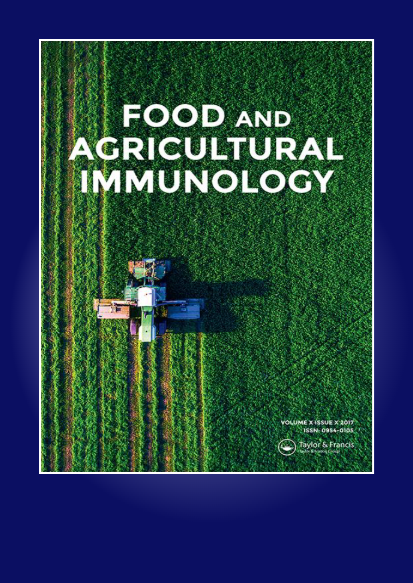Curcumin inhibits invasion and metastasis of human hepatoma cells through Bclaf1-mediated Wnt/β-catenin signalling
IF 2.1
3区 农林科学
Q3 CHEMISTRY, APPLIED
引用次数: 1
Abstract
ABSTRACT Curcumin, a kind of natural compound extracted from the rhizome of Zingiberaceae such as turmeric, has many pharmacological effects such as anti-cancer effects. This study investigated the effect of curcumin on the invasion and metastasis of hepatocellular carcinoma (HCC) cell lines HepG2 and SK-Hep-1 through the Wnt/β-catenin signalling pathway and the regulatory mechanism of Bcl-2-associated transcription factor 1 (Bclaf1). Curcumin significantly inhibited the migration and invasion of HepG2 and SK-Hep-1 cells and inhibited the Wnt/β-catenin signalling pathway and reduced Bclaf1 expression in human hepatoma cells. In nude mice, intraperitoneal injection of curcumin significantly inhibited the growth of subcutaneously transplanted tumours and reduced lung metastasis of the tumour cells, downregulated the expression of Bclaf1, and inhibited the Wnt/β-catenin pathway. This study suggests that curcumin is a novel candidate drug to prevent cancer metastasis and that Bclaf1 is a new gene target related to the proliferation, invasion, and metastasis of hepatocellular carcinoma.姜黄素通过bclaf1介导的Wnt/β-catenin信号传导抑制人肝癌细胞的侵袭和转移
摘要姜黄素是从姜科姜根中提取的一种天然化合物,具有抗癌等药理作用。本研究探讨了姜黄素通过Wnt/β-catenin信号通路对肝癌细胞系HepG2和SK-Hep-1侵袭转移的影响,以及Bcl-2相关转录因子1(Bclaf1)的调控机制。姜黄素显著抑制HepG2和SK-Hep-1细胞的迁移和侵袭,抑制Wnt/β-catenin信号通路,降低Bclaf1在人肝癌细胞中的表达。在裸鼠中,腹腔注射姜黄素显著抑制皮下移植肿瘤的生长,减少肿瘤细胞的肺转移,下调Bclaf1的表达,并抑制Wnt/β-catenin通路。本研究表明,姜黄素是一种新的预防癌症转移的候选药物,Bclaf1是一种与肝细胞癌增殖、侵袭和转移相关的新基因靶点。
本文章由计算机程序翻译,如有差异,请以英文原文为准。
求助全文
约1分钟内获得全文
求助全文
来源期刊

Food and Agricultural Immunology
农林科学-毒理学
CiteScore
5.30
自引率
6.70%
发文量
52
审稿时长
2 months
期刊介绍:
Food and Agricultural Immunology is an international open access journal publishing original immunological research with applications in food, agricultural, environmental and veterinary science. Submissions describing the use of immunological techniques and methods are particularly welcomed.
The journal aims to expand our understanding of the interactions at the interface of food and immune systems including studies on:
-Development of diagnostic systems – all types of ligand-based assays, e.g. antibody, aptamer
-Application of ligand-based assays for the detection or identification of molecules of interest in food science, agricultural research, veterinary investigations and clinical systems relating to food allergy or sensitivity to agricultural chemicals
-Effects of food on the immune system
-Studies on allergy and allergic reactions
-Investigations into food allergies
-Development of allergen-free food systems
-Development of novel assay formats
-Applications of assay systems to the monitoring of food items in relation to safety and labelling
-Food quality issues, e.g. speciation, adulteration and contamination
-Comparisons between different analytical techniques
The journal publishes research and review articles and is essential reading for food scientists, immunologists and all those concerned with the interaction between food and immune systems.
 求助内容:
求助内容: 应助结果提醒方式:
应助结果提醒方式:


